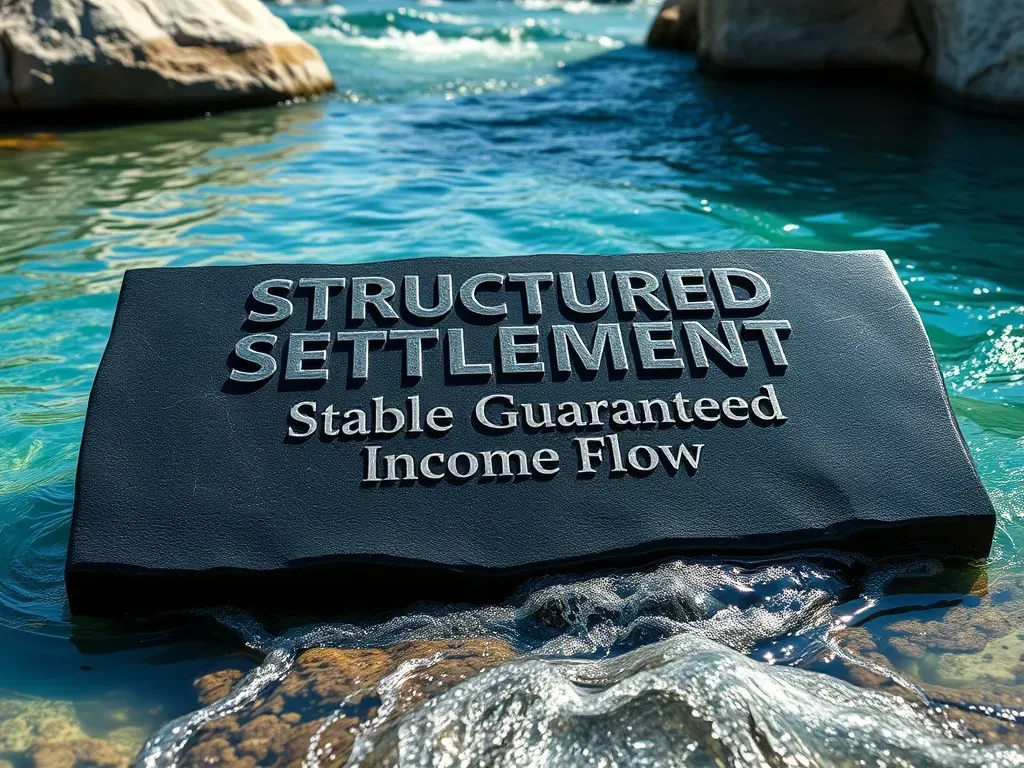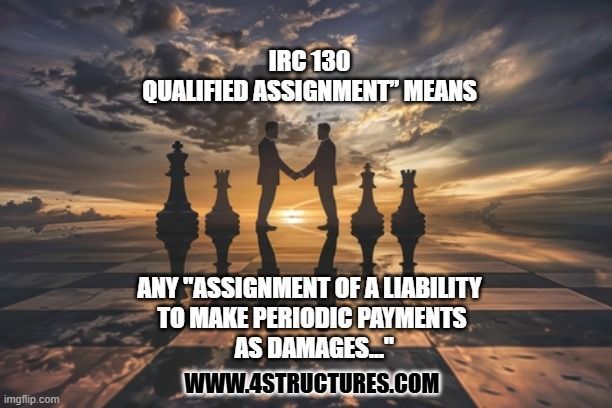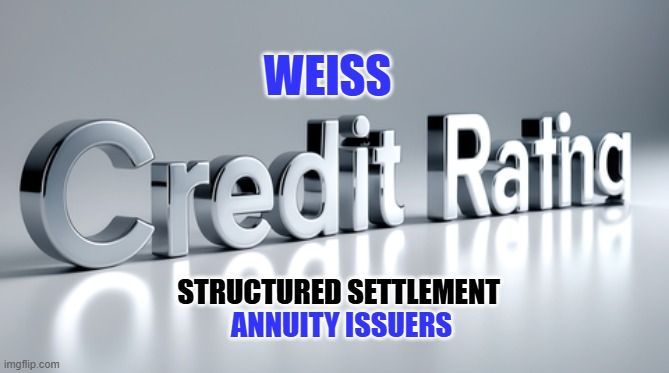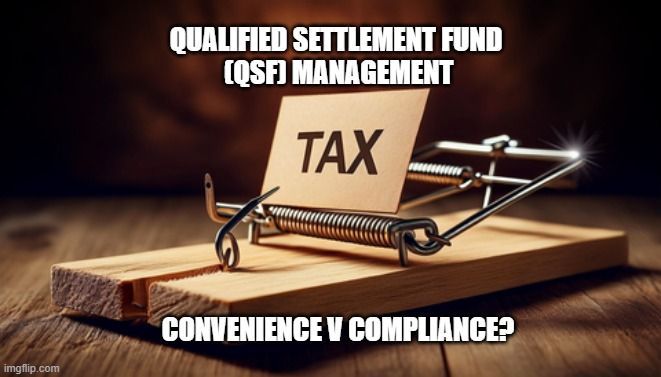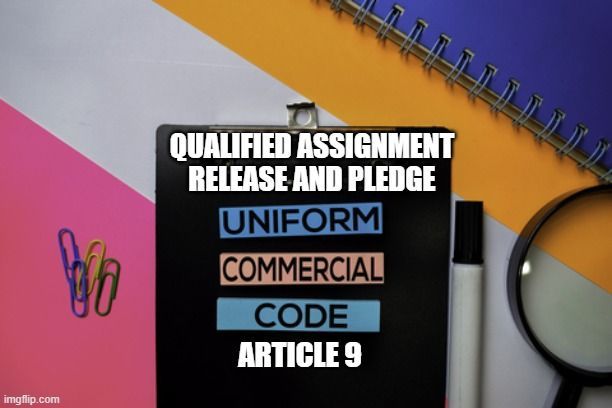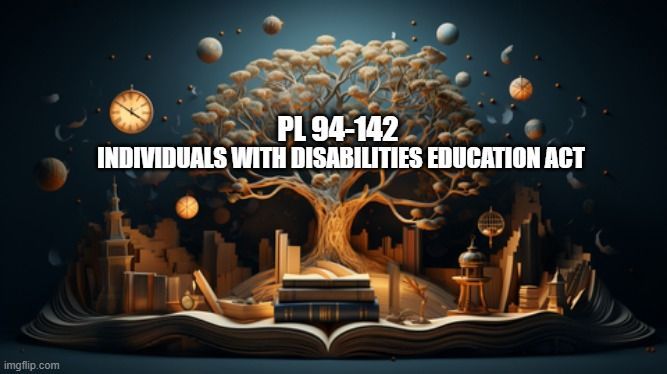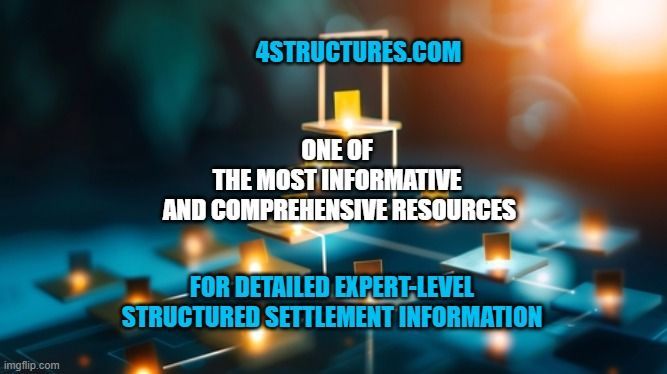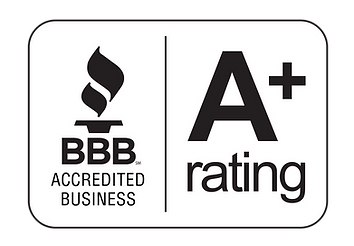Qualified Settlement Fund Not So Best Practices | Pay Attention!
Can a Qualified Settlement Fund (QSF) Be Retroactively Requalified After Revocation or Termination of a Governmental Authority’s Continuing Jurisdiction?
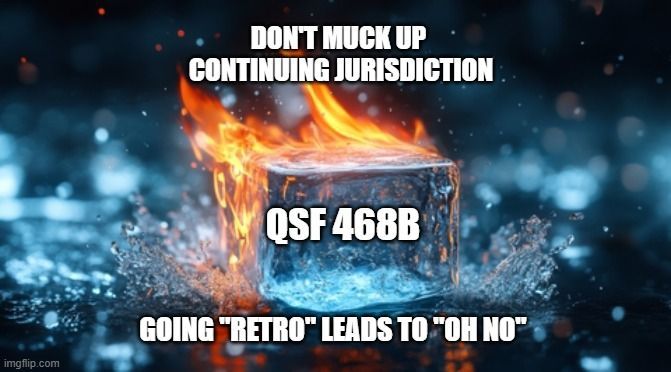
Introduction
- Let's examine a situation in which a governmental authority revokes or terminates the ongoing jurisdiction of a Qualified Settlement Fund (QSF) and explores whether a new governmental authority can retroactively remedy the disqualification.
- It is important to note that revocation or termination of a governmental authority’s continuing jurisdiction of a QSF invalidates the fund’s qualified status under Treas. Reg. § 1.468B-1, potentially exposing the transferors and claimants to adverse tax outcomes.
- This analysis concludes that approval by a new governmental authority, after a fund lost its status as a QSF due to revocation or termination of the initial governmental authority’s continuing jurisdiction, cannot have a retroactive effect.
- If fraud, bad faith, or false pretenses form the basis for revocation or termination, the disqualification may be applied retroactively to the inception of the QSF. Additionally, this brief addresses fund termination rules, notification obligations, and the invalidation of structured settlements under IRC § 130.
QSF Qualification Requirements and the Role of Continuing Jurisdiction
A QSF is a specialized tax entity under Treas. Reg. § 1.468B-1 that allows transferors (e.g., defendants or insurers) to deduct contributions to the fund upon transfer, while the fund itself is taxed as a separate entity under Treas. Reg. § 1.468B-2. To qualify, the fund must continuously meet three requirements:
1. It must be established pursuant to an order of, or approved by, a governmental authority (including a court), and remain subject to the continuing jurisdiction of that authority (See Treas. Reg. § 1.468B-1(c)(1)).1
2. It must resolve or satisfy one or more contested or uncontested claims arising from specified liabilities, such as torts, breaches of contract, or violations of law (Treas. Reg. § 1.468B-1(c)(2)).
3. It must be a trust under state law or have its assets segregated from the transferor’s (See Treas. Reg. § 1.468B-1(c)(3)).
It's crucial to note that “continuing jurisdiction” element is not a one-time condition but an ongoing obligation.
- IRS guidance, including twice on page 3 of the Instructions for Form 1120-SF (Rev. November 2022), emphasizes that QSF must remain under the approving authority’s oversight to ensure proper administration and resolution of claims and tax treatment.
- If the administrator or promoter of the QSF (e.g., a bank or other entity) refuses to comply with demands from the governmental authority for access to information, documents, or otherwise hinders this continuing jurisdiction (leading to the governmental authority revoking or terminating its continuing jurisdiction of the QSF), the fund thus fails the qualification requirements of Treas. Reg. § 1.468B-1(c)(1)).
Revocation of Termination of Continuing Jurisdiction Invalidates the QSF
Revocation or termination of continuing jurisdiction invalidates the QSF prospectively from the date of revocation or termination, as the regulations require sustained compliance (see PLR 202446001 and PLR 202337009, where the IRS confirmed QSF status only when all requirements, including continuing jurisdiction, are met).
Termination of the QSF
A QSF ceases to exist on the earlier of two dates under Treas. Reg. § 1.468B-2(k)(2)(ii):
(A) the date it no longer satisfies one or more requirements of Treas. Reg. § 1.468B-1 (e.g., revocation or termination of governmental authority’s continuing jurisdiction or an operational failure triggering either the constructive receipt or economic benefit doctrine), or
(B) the date it no longer has any assets and will receive no further transfers.
- In the revocation or termination scenario, the QSF ceases to exist immediately upon the governmental authority’s revocation, termination of its continuing jurisdiction, or operational failure, as the fund ceases to meet the continuing jurisdiction requirement explicitly stated in Treas. Reg. § 1.468B-1(c)(1).
- This triggers final tax reporting obligations for the fund, including a final Form 1120-SF and distribution of remaining assets to claimants or transferors.
Can't Retroactively Requalify QSF with New Governmental Authority
- Once the governmental authority revokes or otherwise terminates its continuing jurisdiction, the QSF ceases to qualify under Treas. Reg. § 1.468B-1(c)(1).
- Attempting to “shop around” for a new governmental authority to requalify the fund retroactively cannot restore “tax qualification.” Treas. Reg. § 1.468B-1(e)(1) and the instructions for Form 1120-SF explicitly state that a governmental authority’s order or approval has no retroactive effect and does not permit a fund to be a qualified settlement fund prior to the date the order is issued or the approval is given. This rule is designed to prevent manipulation and ensure that QSF tax benefits (e.g., immediate deductibility for transferors under Treas. Reg. § 1.468B-3) are only available during periods of legitimate qualification.
In practice, a new approval would only qualify the fund from the date of the new order forward, assuming the other requirements are met. However, the fund’s invalidity period cannot be cured retroactively.
IRS QSF Revocation Policy is Similar to that of Retirement Plans
IRS revocation policies align with those in analogous contexts, such as qualified retirement plans, §125 plans, and tax-exempt organizations, where revocation for loss of qualification is prospective unless fraud is involved (see IRS Technical Advice Memorandum on declining to limit retroactive effect of revocation, though not QSF-specific).2
Post-revocation operations (e.g., income earned or distributions) are no longer taxed as a QSF but instead taxed under alternative rules (e.g., as a grantor trust or ordinary trust), potentially increasing the fund’s tax liability and exposing transferors to amended returns.
Restarting the process requires establishing a new QSF or restructuring the existing one, which may involve new transfers and could trigger additional scrutiny if the original revocation stemmed from promoter misconduct.
Potential for Retroactive Disqualification Due to Fraud, Bad Faith, or False Pretenses.
- If the revocation or termination is linked to fraud, bad faith, or false pretenses—such as administrators or promoters making false statements or withholding information during the QSF approval process, or deliberately hindering the governmental authority’s continuing jurisdiction through document withholding or other obstructive acts -the IRS may pursue retroactive disqualification to the QSF’s inception. While the regulations do not explicitly address this, IRS practice in similar contexts (e.g., revocation of tax-exempt status or rulings) allows for retroactive invalidation when qualification was obtained through fraud or material misrepresentation (see Treas. Reg. § 601.201(n)(6) on revocation of private letter rulings for misrepresentation, and analogous cases like Badaracco v. Commissioner, 464 U.S. 386 (1984), extending statutes of limitations for fraud).
- In QSF cases, bad faith may include misrepresenting the fund’s structure or claims to secure initial approval, or administrators’ or promoters’ actions that undermine the “continuing jurisdiction” requirement in a manner that suggests an intent to evade oversight. In such cases, consequences include disallowed deductions for transferors (requiring amended returns), taxation of fund income as if it were never a QSF, and potential penalties (e.g., accuracy-related under IRC § 6662 or fraud under § 6663).
The “Relation-Back Rule” Cannot Cure a Disqualified QSF
- The “relation-back rule” found in Treas. Reg. § 1.468B-1(j)(2) does not provide for a new governmental authority retroactively approving and curing a QSF’s period of disqualification, after the initial governmental authority revokes or otherwise terminates its continuing jurisdiction over a QSF.
- The relation-back rule is meant only to bridge the time gap before the initial governmental approval, allowing for retroactive QSF status from the later of the date the fund first met the requirements for claims resolution and asset segregation, or from January 1 of the approval year.
- It does not permit a fund to be retroactively re-qualified to its date of disqualification or its original approval date after it has failed to meet the ongoing requirements of Treas. Reg. § 1.468B-1(c). Once the governmental authority revokes or otherwise terminates continuing jurisdiction over the QSF, the fund no longer qualifies as a QSF.
- A new approval from a different governmental authority would only grant the fund QSF status from the date of the new approval onward (assuming all other requirements for QSF status are met). At most, it would relate back to when the fund again met the claims resolution and segregation requirements after losing its status, but not to the original approval date. Using the relation-back rule in this situation would go against the regulation’s structure and the explicit prohibition on retroactive approval found in § 1.468B-1(e).
Duty to Notify Defendants and Claimants of Invalidation of Tax Benefits.
Promoters or administrators of QSFs have an ethical and potentially legal duty to notify defendants (transferors) and claimants of the invalidation of tax benefits once a QSF loses its status. This stems from fiduciary obligations under state trust law (as QSFs are typically trusts) and IRS disclosure requirements for tax practitioners under Circular 230. Notification should specify:
· That tax benefits (e.g., deductibility of transfers or favorable fund taxation) are invalidated prospectively from the date the QSF loses its status (or retroactively to inception if bad faith or fraud is determined by the IRS).
· The need for affected parties to correct their tax positions, such as filing amended returns within the statute of limitations.
· Potential penalties and interest if corrections are not made promptly. Failure to notify could expose a promoter’s business to liability for breach of fiduciary duty, professional negligence, or even aiding tax evasion, especially if the revocation involves affiliate misconduct.
Invalidation of Structured Settlement Arrangements Under IRC § 130
- If the QSF loses its status due to the revocation or termination of the governmental authority’s continuing jurisdiction, any structured settlement arrangements pursuant to IRC § 130 become null and void.
- Under IRC § 130, qualified assignments permit transferors to fund structured settlements tax-free, provided the settlement resolves a qualifying claim and often involves a QSF as an intermediary.
- Revocation or termination of the governmental authority’s continuing jurisdiction disqualifies the fund, rendering the structured arrangement non-compliant with § 130’s requirements for tax exclusion of the assignment.
- Consequently Periodic payments may lose their tax-exempt status, becoming taxable to recipients as ordinary income.
- The transferor may lose the ability to deduct the assignment cost upfront, requiring retroactive adjustments if disqualification is retroactive.
- Annuity providers or affiliates could face unwind obligations, with funds reverting to court oversight or redistribution. In practice, courts in QSF disqualification cases may order the dissolution of structured arrangements, treating them as void ab initio if tied to a non-qualifying fund. This underscores the importance of maintaining QSF compliance to preserve IRC § 130 benefits.
Conclusion
If a governmental authority that originally approved a QSF later revokes or otherwise terminates its continuing jurisdiction, the fund’s status as a QSF is terminated prospectively, and a new approval cannot apply retroactively, per the Treasury Regulations and IRS guidance. If fraud, bad faith, or false pretenses contributed, retroactive disqualification to the inception date is possible, which can amplify tax liabilities and penalties. Structured settlements under IRC § 130 are invalidated, and the promoter or administrator of the QSF must notify affected parties to correct tax positions.
Footnotes
